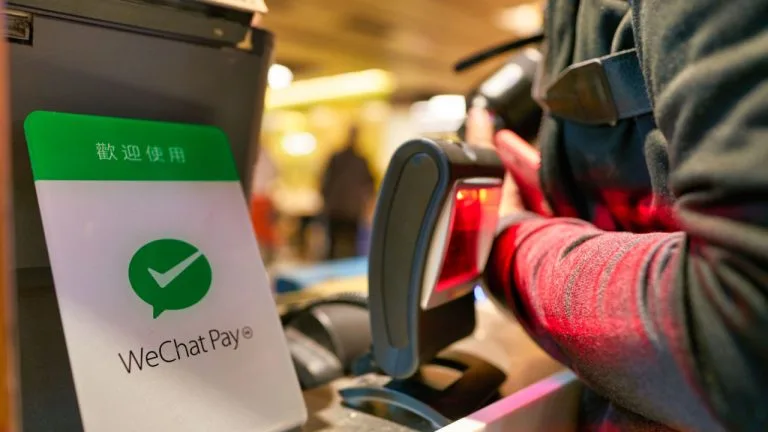Chinese social media platform Wechat has introduced support for the state-backed digital yuan in its popular payment app. Over a billion users will now ostensibly be able to take advantage of fast payments with the digital currency issued by the People’s Bank of China.
Wechat Pay Follows Alipay in Integrating Payments With Digital Yuan
The largest Chinese social network and instant messenger, Wechat, has added China’s central bank digital currency (CBDC) to its payment application, Wechat Pay, with its latest update, the local news outlet The Paper reported.
More than 1.2 billion users will have access to the new feature and be able to spend digital yuan (e-CNY) to pay for goods, services, and utility bills in some widgets with more use cases planned for the future, including the launch of direct transactions between Wechat users.
About 750 million people use Wechat Pay daily. According to a report by Global Times, e-CNY payments are currently restricted to 2,000 yuan per transaction (close to $290) and there’s a daily limit of 5,000 yuan (a little over $700).
Owned by the Chinese tech giant Tencent Holdings, Wechat Pay becomes the second major payment system in China to introduce support for the digital yuan after Alibaba Group’s Alipay platform integrated the e-CNY wallet in December, 2022.
The Chinese government has been actively promoting its digital currency with trials underway in over two dozen cities and provinces and more than 5.5 million participating merchants and other businesses. Data released at the end of last year showed the volume of e-CNY payments exceeding 13.5 billion yuan.
Use cases have been growing, too, but in September, the People’s bank of China called for deeper integration of its new currency with e-payment providers. And in December, a former head of research at the central bank was quoted as stating that the digital yuan trials had produced disappointing results in terms of usage and activity.
Do you expect other payment platforms to integrate the digital yuan in the near future? Let us know in the comments section below.





